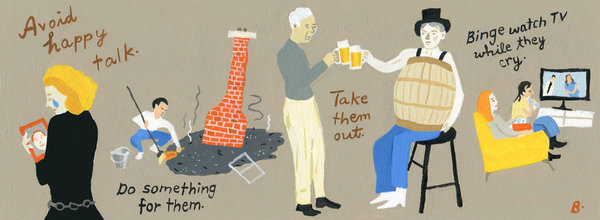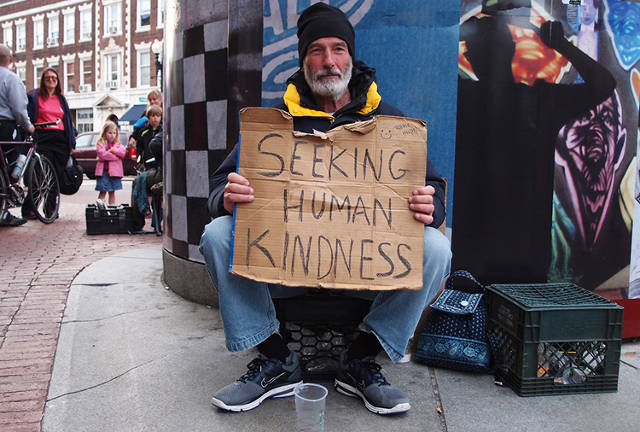In the last few years, many of my friends and acquaintances encountered difficulties in various life situations. Although I have made myself available to help, I often have doubts about how I could render comfort without being overtly intrusive. This perplex often prevented me from ‘reaching all out’ as a friend in need. I stumbled upon Bruce Feiler’s article on the New York Times which provided very useful tips on how to be that person that gives assurance and comfort to a person in trouble.
“In each case, I struggled with what to do. I don’t make casseroles; I’m not likely to run into these friends in our daily lives, and I’m not part of their inner circle.” Bruce Feiler confessed. He aptly describes our inner murmurings when we received the not-so-good news from people we know. There are already a host of solutions, such as sending an email or donating to a charity, however in intensely difficult situations, sufferers may need more personal attention from people in their surrounding. If you are searching for some old-fashion approach in being there for a friend, Bruce Feiler has reached out to some writers who have grappled with these themes:
Just Do It
Our instinct is often to say to a friend who’s suffering, “Let me know if there’s anything you need.” I admit I am guilty of making the same comment even though my true intention is to offer help and also give my friends the personal space to be alone. According to Bruce Feiler, the gesture unfortunately unintentionally shifts the obligation to the aggrieved. Instead of offering “anything,” just do something and let the sufferer decide if he or she needs your contribution.
Make Time
A common plight of people in crisis is that they feel isolated or ostracized. Meghan Daum, the author of “The Unspeakable,” said that when her mother was dying, the best thing her friends did for her was to continue to socialize with her as if she weren’t in the middle of a crisis. “Often we assume people want to be left alone when they’re dealing with some kind of protracted ordeal,” Ms. Daum said. “And while it was certainly true that I was overwhelmed, there was nothing I wanted more than to just get away from the situation.”
Forget Happy Talk
We all get annoyed with clichè slogans about staying calm and staying positive. In many situations that my friends face, things will not (or did not) get better. Our friends need to be encouraged that despite the difficult days ahead, we are there for them: to assist them in overcoming the difficulties. Saying ‘everything would be OK’ could be isolating and insensitive, rather we should accept the dark realism and give assurance that sufferer have a helping hand in surviving the grim situation. A little stoic support may in fact be a comforting gesture
May I Distract You With Me?
Paradoxically, sometimes the best way to be a friend to someone in crisis is to change the subject, share a bit of our own troubles and distract the sufferer with our own vulnerability and sadness.
Social Media
Our lives are increasingly surrounded by friends’ happy and sad updates on the social media, although it is nice to have friends showing their support with a emoji or with a click on the LIKE button, I am cautious of responding to personal messages in a public way. Technology does offer us the opportunity to show our support in a swift manner, especially if our friends in trouble live in a distant state or country, however as the saying goes crisis is the test of friendship and the success of the friendship is measured in intimacy.




